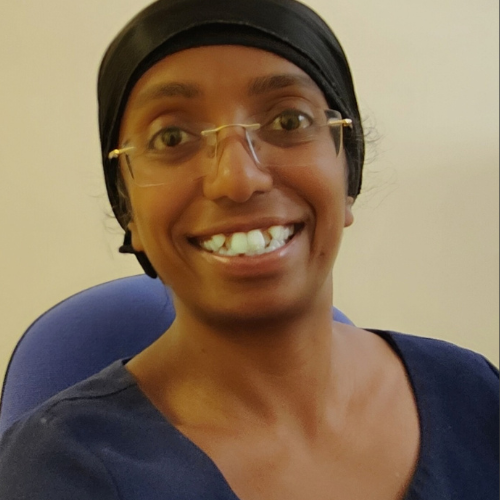October News
This month we’re delighted to share the new LKN Health Equity e-learning module. In our new ‘Meet the Team’ section, we chat to two of our AHPs ahead of AHP Day on 14 October. There are reports from our Health Equity Leadership Forum and Renal Supportive Care for GPs webinar which gave us lots to reflect on and got great feebdack. We look forward to the launch of a Supportive Care e-module later in early November and the October Leadership Forum on Patient Participation and Engagment.
We hope you enjoy reading our newsletter, and look forward to sharing more with you in November.
LKN Health Equity e-module available now!
London has a diverse population with many people experiencing health inequalities. Tackling these must be everyone’s responsibility. Highlighting kidney health inequities to those in working with people with kidney disease is an essential step to ensuring our departments can rise to meet this challenge.
In September 2022, we surveyed staff across London about their understanding of kidney health equity. 87% said they would like health equity training; self-paced e-learning was the preferred option.
Twelve months on, the module is live. It introduces the concept of health inequalities and health inequity. It highlights the unequal health outcomes experienced by people living with chronic kidney disease (CKD) and covers practical ideas to tackle health inequalities for staff working with kidney patients.
A wide range of feedback was gained during the module development. Comments included:
“I’m a big fan of the interactivity, to help keep people engaged, and also the case studies, which go over lots of different issues and practical elements that people don’t potentially think of.”
“Easy to follow, doesn’t take long but has lots of information without feeling burdensome.”
Dr Gavin Dreyer, Health Equity Group co-Chair, says:
“This is all about making sure our workforce is as knowledgeable and skilled in identifying and reducing health inequalities for patients with kidney disease. My personal philosophy is that it is as important for the admin and clinic reception team to know this info as it is for the most senior clinical staff.”
Education sub-group Lead, Sarah Milne reflects:
“It’s been a challenge to complete with the competing pressures of work, but this is an urgent issue and I urge you all to take the time to complete and encourage your colleagues and teams to do the same.”
We’d like to thank our colleagues at KHP for their support in building and hosting the module.
LKN Leadership Forum

It's not just about attending; it's about fostering conversations that can drive positive change
On 23 September, we heard from health equity leaders and patient representatives. We heard about the realities of having a long-term health condition in the midst of a cost of living crisis, and inspiring examples of work being done in London and in the North East of England to try to address inequalities and reduce inequities.
Attendee feedback was really positive, with people leaving inspired to make a change.
“Thanks for a really interesting and varied meeting”
“We as healthcare practitioners need to get political…and leverage the institutional power of our institutions to lobby…I would be interested to explore how we could use our collective power for this purpose.”
We’d like to thank:
Jack Bartley – Advocacy Officer at Kidney Care UK and Stephanie Mitchell –Senior Social Worker at Kings College Hospital NHS Trust, for their talk on Experience and Realities of Kidney Health Inequalities
Dr Julie Billet Deputy Regional Director (Office for Health Improvement and Disparities London) Health Inequalities in London, for her presentation on Reflections from London Health Networks and areas of best practice
Dr Saeed Ahmed – Consultant Nephrologist at South Tyneside and Sunderland NHS Trust, for sharing excellent work address Kidney Health Inequalities in Northeast and North Cumbria Kidney Network.
Dr Gavin Dreyer and Deepa Kariyawasha, Health Equity Group co-Chairs, will be exploring how the LKN can learn from and embed the work presented.
The next forum, on Monday 23 October 1130-1230 will focus on Patient Partnership and Engagement in the LKN.
If you’d like to join us for the series of fora but don’t already have the Teams link, please email us at lkn.londonkidneynetwork@nhs.net
Celebrating Allied Health Professionals in the London Kidney Network
14 October is Allied Health Professionals (AHP) Day, a chance to celebrate the role that Allied Health Professionals have in health care. We’re taking the opportunity to introduce you to two of our AHP Team. We’re delighted that AHPs play a significant role in the LKN team, bringing a wealth of experience and a different view to our work.
Sinéad Burke
Multi-Professional Clinical Lead for LKN, Clinical Lead Renal Dietitian and AHP Information Officer
Royal Free London NHS Foundation Trust
What skills does being an AHP give you that allows you to fulfil your role in the LKN? Being a dietitian in chronic disease for nearly 20 years has allowed me to walk alongside people living with CKD as we reach for those improvements that will give them the very best outcomes – clinical or QOL. This is absolutely necessary when working in any network, and the LKN has worked hard to bring the patient’s voice into every piece of work it undertakes.
What do you love about being an AHP? Being an AHP combines science and human connection – the dream career for me!
What do you love about working with the LKN? It has been so fulfilling being part of a wide-scale initiative to improve the care of people living with kidney disease.
What’s your advice to other AHPs considering taking on a ‘non-traditional’ role? Do it! And always look for your unique angle – even if this means bringing a little challenge to the conversation. This is the value of having the AHP voice in the room!

Deepa Kariyawasam
Multi-Professional Clinical Lead for LKN, Senior Renal Dietitian
King’s College Hospital
What do you love about being an AHP? I love that my role is varied. I may see someone on the ward,quite unwell, then I get to see the same peorson a few months later, much improved in dialysis outpatients. It is great to be able to witness these improvements when working in a long-term condition setting. Working with the MDT means that Iget to learn from others and utilise some of this learning to offer a more holistic service
What skills does being an AHP give you that allows you to fulfil your role in the LKN? As an AHP, I need to think holistically about people’s ability to take on a treatment plan; can they understand and read the information, can they afford the suggested meals? As co-chair of the LKN Health Equity group, it’s important that I consider the same barriers to accessing health care, and more, to drive work to reduce health inequalities.
What do you love about working with the LKN? It’s great to be able to work on projects with other healthcare professionals with different skill sets and experiences that I can learn from. I work with Dr Gavin Dreyer who wrote the Kidney Research UK report on health inequalities and it is great to be able to learn from his expertise.
What’s your advice to other AHPs considering taking on a ‘non-traditional’ role? It’s definitely worth doing if you have the opportunity. You have a varied set of skills, enabling you to work across boundaries and professional groups. It will provide you with opportunity to develop a skill set that you might struggle to get in a clinical role.
Supportive Care for Primary Care Webinar
The LKN Supportive Care Workstream ran a webinar for GPs on Friday 29 September 2023 1300-1400, which was co-produced with GPs and secondary care clinicans.
Almost 70 primary care professionals registered to learn about what kidney supportive care is, and how primary and secondary care clinicans can work to best meet the needs of those with supportive care needs. Feedback was really positive:
“Thank you for an excellent webinar”
“Thank you for a well-balanced presentation” “Fantastic!”
If you’d like to watch the webinar, it will be on the LKN website soon, along with the presentation slides.
LKN Supportive Care e-module available in October
A significant proportion of the renal population is older, frailer and vulnerable. We want to provide excellent care, but this can be challenging.
The LKN Supportive Care Workstream has developed a two-module e-training package for healthcare professionals about kidney supportive care and advanced care planning (ACP), in collaboration with King’s Health Partners (KHP).
The majority of existing education tools focus on palliative care and end-of-life care, with very little emphasis on what we can do in the later stages of kidney disease when quality of life has become the predominant goal of care. This includes people who forgo dialysis and those who are on renal replacement therapy but also need help due to frailty.
The module focuses on what staff want and need to know. They draw on surveys and feedback from kidney professionals as well as people living with advanced kidney disease and their supporters.
The modules includes definitions, case studies, examples of completed ACP’s, infographic videos , FAQ’s, quizzes and links to additional resources. They aim to reduce staff worry about introducing supportive care as a treatment option, and about starting ACPs. They will equip staff to put their knowledge into practice, to improve the outcomes.
The modules take around 90 minutes to complete and will be launched in the next newsletter.
